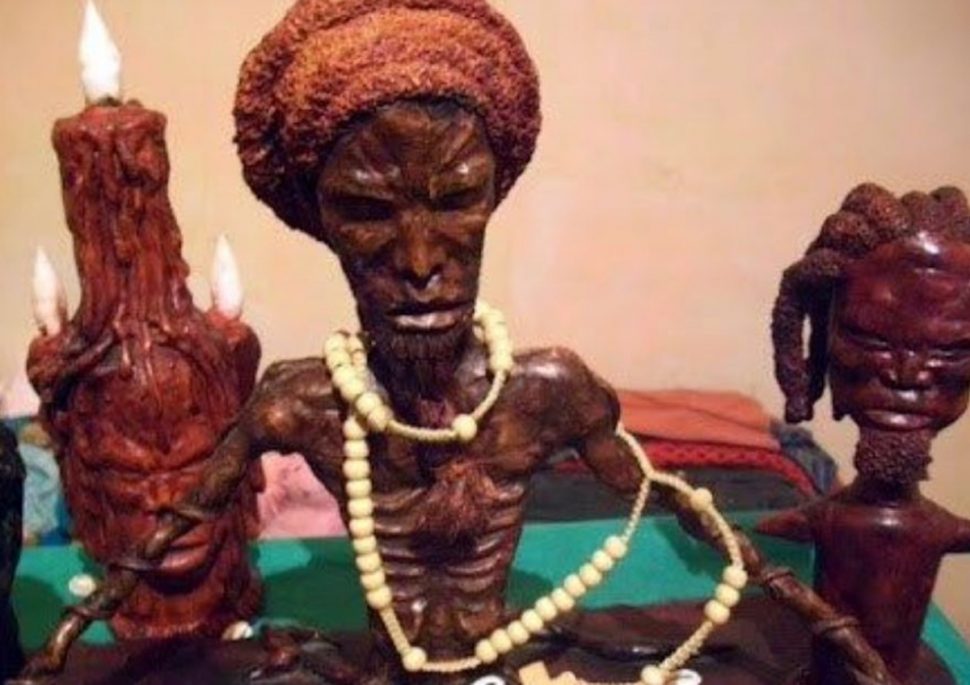(Jamaica Gleaner) For more than a century, the practice of obeah has been illegal under Jamaican law.
But just as lawmakers were getting ready to push the maximum fine to $1 million for anyone found guilty of practising obeah, Justice Minister Delroy Chuck signalled that the quasi-religious ritual could soon become legal.
Chuck disclosed that already he has instructed the Law Reform Department to craft another submission for him to take to Cabinet to have the 1898 Obeah Act repealed.
“I would like to bring, for us to debate here in his House, a bill for repeal of the obeah law. It will be put in a broader concept in terms of scamming and other things,” Chuck announced in the House of Representatives yesterday.
“There is no reason, Mr Speaker, why the Obeah Act should still remain on the statute book, and we hope to remove it in due course,” he insisted.
Church leaders immediately signalled that there would be pushback against a move they argued was leading the nation away from God.
Prophetess Almarie Campbell of Tarrant Baptist Church, speaking during a street meeting in Prime Minister Andrew Holness’ West Central St Andrew constituency yesterday, voiced her objection and called on the Church to join her in protest.
“It shall not be legalised. It shall not be legalised … . Not on our watch, in the name of Jesus Christ of Nazareth,” declared Campbell.
“Cause a fire to start in Parliament, cause a fire to start in Gordon House, cause a fire to start in the bed of every parliamentarian, cause a consuming fire to enter Parliament,” she added.
Pastor of Tower Hill Missionary Church, Rennard White, warned the Government to be “careful of the message you are sending”.
“Any time people start to go into those things, they are going away from faith and confidence in Almighty God. It would bother me because you would be virtually endorsing the thing and virtually opening the gate to say to people it’s okay,” White told The Gleaner yesterday.
But the announcement by Chuck was welcome news for a St Catherine-based obeah man, who has been “helping” people for more than four decades.
Ronnie said he knows that what he is doing could land him in trouble with the law, but insisted that he is simply assisting persons who cannot afford the cost of seeing a medical doctor.
“It help people more than the doctor,” he insisted.
“Somebody admit inna hospital fi cut and a somebody tek him outta hospital and bring him to me and me look after him. When him go back a doctor, the doctor ask him a who look after him,” he told The Gleaner.
“There are some things weh doctor cannot help. The doctor dem a cut people an send dem go buy medicine weh can’t help,” Ronnie insisted.
He said he sometimes give his clients a “bath” or “mix something” and “cut off the evil off a dem”.
He added: “Mi nuh feel seh yuh should a get lock up for that because yuh a help people.”
The discussion about the Obeah Act unfolded after lawmakers briefly diverted from a debate on the Law Reform (Amendment of Penalties) Act, which was unanimously passed to provide significantly increased fines for a range of offences on the books with paltry fines.
The Law Reform (Amendment of Penalties) Act would have increased the fine for persons convicted of practising obeah from $100 to $1 million, but the legislation was amended to exclude the Obeah Act because of the plan to repeal it.
A Cabinet submission for the repeal of the 121-year-old Obeah Act was submitted 44 years ago in 1975, but is still somewhere gathering dust.









